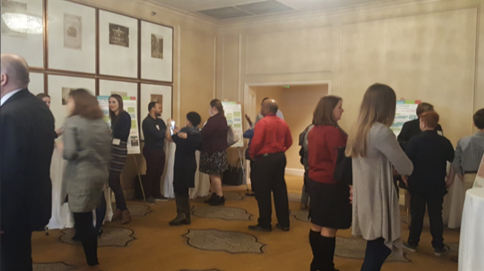
Leading Boston educators met this morning for an event entitled Beyond Standardized Tests to discuss non-traditional assessment methods. Massachusetts has some of the best education scores in the country, but they are unable to narrow the gap between minority students and students of lower socioeconomic status (SES). Boston is hoping new assessment measures can help level the playing field for those whose test scores indicate more about a student’s neighborhood and home life and less about their educational experience.
Chad d’Entremont, Executive Director at the Rennie Center for Educational Research and Policy opened Beyond by stating, “This is what we should do when we see a problem in education, and we need to come together, have a voice, and the collaboration and willingness to try new things.”
State Sen. Patricia Jehlen, D-Somerville, added “There is too much emphasis on standardized testing, however, we want to see something new before we throw out the old system.” Jehlen added that many districts and educational leaders are afraid to start from scratch, noting that it’s difficult to move past an assessment that captures some of the successes the state has had.
Dan French, Executive Director at the Center for Collaborative Education spoke about the gaps in education. “Achievement gaps are still persistent,” he said, “Massachusetts actually has some of the largest gaps in the country.”
“We have to create assessments that drive learning,” said French.
Marissa Roque, a 7th grade teacher in Somerville Public Schools also spoke at length about her desire to create a better assessment process. She’s seen the passion her students have when discussing a particular issue in class that doesn’t always translate to a multiple choice test.
“How do you assess the impact of something as large as apartheid with a quiz? I can see that they understand the social impact in South Africa but it doesn’t always show up in their quiz grade.” Roque took another approach and had her students prepare podcasts which gave them more control on the subjects they focused on, as well as responsibilities such as writing, editing, and recording their podcast which allowed them to catch their own mistakes before the final assignment was submitted.
Speakers and panelists agreed that assessments currently in place are inadequate and provide only a narrow set of data to capture the true educational impact. Massachusetts has used one test for over twenty years to define the success of an institution, educator or student population. It’s time to take a broader look at the assessment process and make changes to accommodate the changing landscape of education and the changing demographics of our state.
“I interview hundreds of people in my job, and never have I asked them what they got on their MCAS or SAT or what their GPA was because those assessments don’t predict how well you can do the job presented,” said Boston Public School principal Katie Grassa.
For more visit mciea.org or review their recent publication, Beyond Standardized Tests: A New Vision for Assessing Student Learning and School Quality.